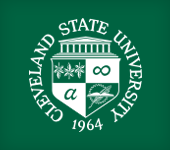Early Childhood Education courses
Cleveland State University

- USA
- World Rank :
- Visit Website
Cleveland State University's Master of Education in Early Childhood Education specialization provides advanced study in early childhood education, a field that has an enormous impact on children, families and society. Students may complete a master's degree, or a teaching license in early childhood education (PK-3), or both. It includes University and field-based experiences that focus on the development and education of children from ages three to eight, including typically developing children and those with mild and moderate disabilities.
While primarily intended to meet the professional development needs of practicing early childhood educators, a qualified applicant who possesses a baccalaureate degree in another teaching field or related discipline may apply required coursework toward a resident educator license in early childhood. Eligibility for this license requires 1) additional coursework beyond that needed for the master's degree, 2) an electronic portfolio containing required artifacts, meeting specific criteria at checkpoints, and demonstrating proficiency in the college outcomes (http://www.csuohio.edu/cehs/students/taskstream/taskstream.html) and the standards of the National Association for the Education of Young Children (http://www.naeyc.org/ncate/standards), see below, and 3) successful completion of Pearson OAE exams.
Built around a common College Core, specialized course work in early childhood education is integrated with required offerings in educational research, social foundations, and human development as outlined below. Taken as a whole, the curriculum focuses on the development of teaching and learning practices associated with high-quality early childhood education for young children representing diverse cultures and abilities. These practices respect all children and provide them with equal opportunity to develop and learn emotionally, socially, physically, and intellectually.
Admission Requirements
Application Form
-International students are required to have met at least one of the following English language proficiency requirements:
Admission Deadlines
All applications must be submitted and complete on the following application deadline dates:
Career Outcomes
This program prepares students to teach and work with young children in both public and private school settings and other childcare centers.
The following is a budget estimate for international students studying in the United States for the forthcoming academic year. If you are a potential student at the institute, it is highly recommended that you keep track of the costs listed below and plan ahead of time for your stay.
| Expenses | Bachelor’s Degree | Master’s Degree | Doctoral Degree |
|---|---|---|---|
| Tuition & Fees | 21,375 | 23,590 | 17,262 |
| Room/Board | 16,800 | 16,800 | 16,800 |
| Books & Supplies | 800 | 800 | 800 |
| Health Insurance | 3,523 | 3,523 | 3,523 |
| Transportation | 1,770 | 1,770 | 1,770 |
| Personal Expenses | 1,800 | 1,800 | 1,800 |
| Total Estimated Cost | 46,068 | 48,283 | 41,956 |
| Tuition Fees in USA (1st Year Average) | BE/Btech: USD 28300 | MS: USD 22693 | BBA: USD 26616 | MBA: USD 29558 | BSc: USD 29418 | MA: USD 20452 | MIS: USD 22133 | MFin: USD 37683 | MEng: USD 29558 | MIM: USD 35301 | MEM: USD 23254 | MArch: USD 34741 | MFA: USD 28857 | BHM: USD 27176 |
| Average Accomodation & Food Costs in USA | USD 700 to 1000 Per Month |
| Entrance Exams in USA | TOEFL: 86 | IELTS: 6.5 | PTE: 60 | GRE: 309 | GMAT: 560 | SAT: 1177 |
| Work and Study in USA | Permitted for 20 hours/week with a valid study permit. Know More |
| Post Study Work Permit in USA | One to Two Years after graduation depending on the course. |
| Cost of Student Visa in USA | USD 160 |
| Student Visa in USA | F1 Visa for USA allows you study permit in USA in full time academic courses. Any accredited school, college, university, academic institute, seminary, or conservatory in USA must accept you beforehand to apply for F1 visa in USA. Know More |
| Intakes in USA | There are Three Intakes in USA: Fall (August-September), Spring (January) Know More |
| Top Job Sectors in USA | Health Care, Education, Construction, Hospitality & Tourism, Business Services, Finance. |
| Economy in USA | GDP Growth of 2.1% (Q4 2019), The Larges Economy of the World by Nominal |
Tuition & fees :
$ 20,766
Total
$ 20,766